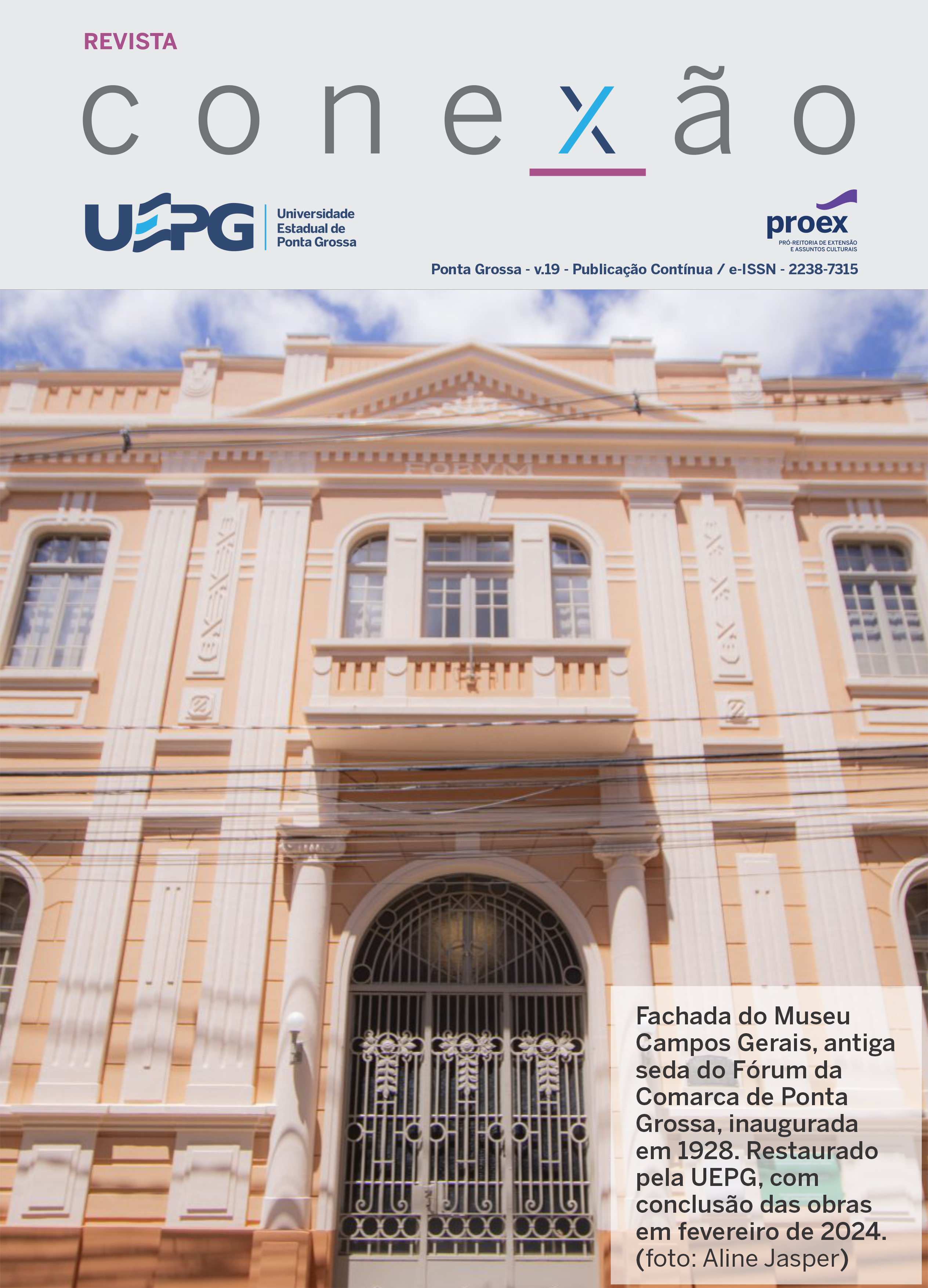SARAU CONTEMPORÂNEO: UM ENCONTRO CIENTÍFICO-CULTURAL NO CONTEXTO PÓS-PANDÊMICO
DOI :
https://doi.org/10.5212/Rev.Conexao.v.20.23764.021Résumé
O Sarau Contemporâneo é um projeto de extensão realizado na Universidade Federal do Pampa. Iniciado em 2019, caracteriza-se como um espaço dinâmico onde são compartilhadas diversas formas de arte e cultura, englobando também discussões científicas. Os Saraus foram idealizados como encontros mensais presenciais, porém, durante o período pandêmico, o projeto precisou ser adaptado ao modelo remoto. O objetivo deste trabalho é avaliar a evolução e o perfil de participantes do Sarau no contexto pós-pandêmico, bem como relatar experiências. O ano de 2022 destaca-se como uma experiência de socialização, abordando temáticas diversas e estabelecendo parcerias com outros projetos da UNIPAMPA. Em 2023 dá-se ênfase a parceria com a Universidade Federal de Santa Maria juntamente com a retomada de alguns encontros remotos que resultou em um maior número de participantes. Reforçamos que o aprendizado construído a partir dessas vivências nos estimula a buscar novas iniciativas e estabelecer novas demandas.
Palavras-chave: Cultura; Extensão; Comunidade; Pós-pandemia; Encontros.
Téléchargements
Téléchargements
Publié-e
Numéro
Rubrique
Licence

Cette œuvre est sous licence Creative Commons Attribution 4.0 International.
a) Os autores mantêm os direitos autorais e concedem à revista o direito de primeira publicação, com o trabalho simultaneamente licenciado sob a Creative Commons Attribution License que permite o compartilhamento do trabalho com reconhecimento da sua autoria e publicação inicial nesta revista.
b) Ao submeter um artigo à Revista Conexão UEPG e tê-lo aprovado os autores concordam em ceder, sem remuneração, os seguintes direitos à Revista: os direitos de primeira publicação e a permissão para que a Revista redistribua esse artigo e seus metadados aos serviços de indexação e referência que seus editores julguem apropriados.
c) Os leitores são livres para transferir, imprimir e utilizar os artigos publicados na Revista, desde que haja sempre menção explícita ao(s) autor (es) e à Revista Conexão UEPG e que não haja qualquer alteração no trabalho original. Qualquer outro uso dos textos precisa ser aprovado pelo(s) autor (es) e pela Revista.

Este obra está licenciado com uma Licença Creative Commons Atribuição 4.0 Internacional.





